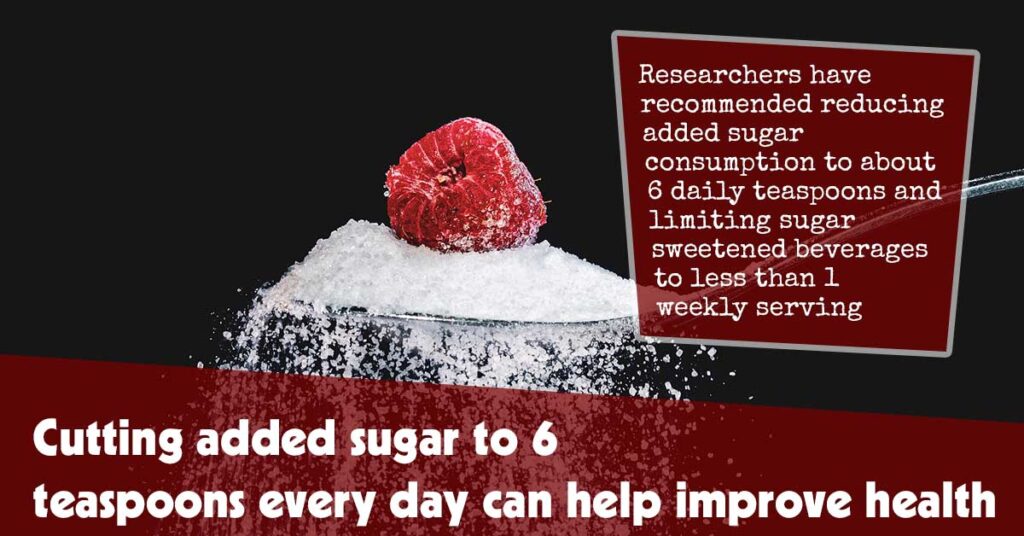Researchers conducted an exhaustive review of evidence and recommended limiting added sugar consumption to no more than six teaspoons daily and one weekly serving for sugar-sweetened beverages.
Researchers discovered connections between sugar consumption and 45 health outcomes, such as depression, some cancers, obesity, diabetes, asthma, heart disease and death.
Sugar consumption can have adverse consequences, which has led the World Health Organization and other health organizations to advise reducing added sugars to less than 10% of total daily energy intake.
Researchers conducted a review to assess evidence quality, potential biases and validity across all studies available on diet-induced sugar consumption and health outcomes.
This review included 67 meta-analyses of observational studies and 6 meta-analyses of randomized controlled studies covering 83 health outcomes.
Evidence was assessed and graded accordingly; for each outcome it was classified as having very low quality evidence, low quality, moderate quality or high quality.
Significant links were discovered between consumption of dietary sugar and 18 metabolic or endocrine outcomes – such as obesity, gout, diabetes; 10 cardiovascular outcomes such as stroke, heart attack, hypertension; 7 cancer outcomes such as pancreatic, prostate and breast cancer as well as 10 additional outcomes such as depression tooth decay asthma and death.
Evidence of moderate quality indicated that consumption of sugar-sweetened beverages was strongly correlated to increased body weight for higher than lower intake levels; any added sugar consumption led to greater muscle and liver fat accumulation.
Evidence of low quality indicates that each additional weekly serving consumed was associated with a 4% increase in gout risk; every 250mL/day increment increased coronary heart disease risk and death risk by 17% or 4% respectively.
Evidence of inferior quality also indicated that each 25 g/day increase in fructose consumption was linked with an 22% increased pancreatic cancer risk.
No correlations were discovered between diet sugar consumption and any positive health outcomes other than cardiovascular disease mortality, type 2 diabetes, total cholesterol levels, brain tumors or glioma mortality; researchers caution that any beneficial links found might not be supported by strong evidence.
These findings reveal multiple health advantages associated with limiting sugar consumption to less than 25 g/day (roughly 6 teaspoons daily), and restricting sweetened beverage intake to no more than 1 weekly serving (200-355mL/week).




